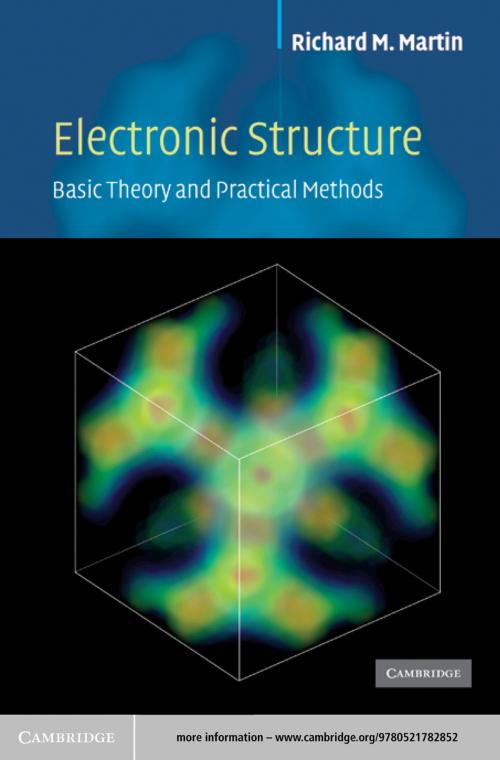Electronic Structure
Basic Theory and Practical Methods
Nonfiction, Science & Nature, Science, Physics, General Physics, Technology| Author: | Richard M. Martin | ISBN: | 9781139636803 |
| Publisher: | Cambridge University Press | Publication: | April 8, 2004 |
| Imprint: | Cambridge University Press | Language: | English |
| Author: | Richard M. Martin |
| ISBN: | 9781139636803 |
| Publisher: | Cambridge University Press |
| Publication: | April 8, 2004 |
| Imprint: | Cambridge University Press |
| Language: | English |
The study of the electronic structure of materials is at a momentous stage, with the emergence of computational methods and theoretical approaches. Many properties of materials can now be determined directly from the fundamental equations for the electrons, providing insights into critical problems in physics, chemistry, and materials science. This book provides a unified exposition of the basic theory and methods of electronic structure, together with instructive examples of practical computational methods and real-world applications. Appropriate for both graduate students and practising scientists, this book describes the approach most widely used today, density functional theory, with emphasis upon understanding the ideas, practical methods and limitations. Many references are provided to original papers, pertinent reviews, and widely available books. Included in each chapter is a short list of the most relevant references and a set of exercises that reveal salient points and challenge the reader.
The study of the electronic structure of materials is at a momentous stage, with the emergence of computational methods and theoretical approaches. Many properties of materials can now be determined directly from the fundamental equations for the electrons, providing insights into critical problems in physics, chemistry, and materials science. This book provides a unified exposition of the basic theory and methods of electronic structure, together with instructive examples of practical computational methods and real-world applications. Appropriate for both graduate students and practising scientists, this book describes the approach most widely used today, density functional theory, with emphasis upon understanding the ideas, practical methods and limitations. Many references are provided to original papers, pertinent reviews, and widely available books. Included in each chapter is a short list of the most relevant references and a set of exercises that reveal salient points and challenge the reader.















